Zoom-in Workshop 2025
SUNY Council on Assessment (SCoA) Zoom-in Webinar
Assessment in the Age of AI
Virtual Zoom Session
As generative AI tools become increasingly integrated into students’ academic lives, faculty face new challenges and opportunities in assessing student learning. Students are already using AI—sometimes in innovative and productive ways, sometimes as a shortcut for course-level assessments such as essays and exams. This reality raises critical questions: Can we still rely on traditional assessments as valid reflections of learning? How should faculty adapt assessment practices to ensure integrity, especially in online learning environments?
This panel will explore strategies for creating valid and meaningful assessments in the age of AI. Panelists will consider:
-
The importance of developing clear course- or assignment-level policies guiding students’ use (or non-use) of AI.
-
How and when to communicate these policies to students, with transparency about the rationale behind them.
-
How transparency, as highlighted in Winkelmes’s research on the impact of “teaching for transparency,” can bolster student motivation by clarifying why particular assignments are structured the way they are and how AI use fits – or does not fit – within that framework.
By engaging with these questions, the discussion aims to help faculty design assessments that not only reflect authentic student learning but also thoughtfully address the challenges and possibilities AI brings into higher education.
Panelists:
Jeannie Brown Leonard, SUNY Adirondack Community College
Sam Abramovich, University at Buffalo
Debora Ortloff, Fingerlakes Community College
For questions, please contact SCoA using this form.
This event is co-sponsored by SCoA and the SUNY Center for Professional Development
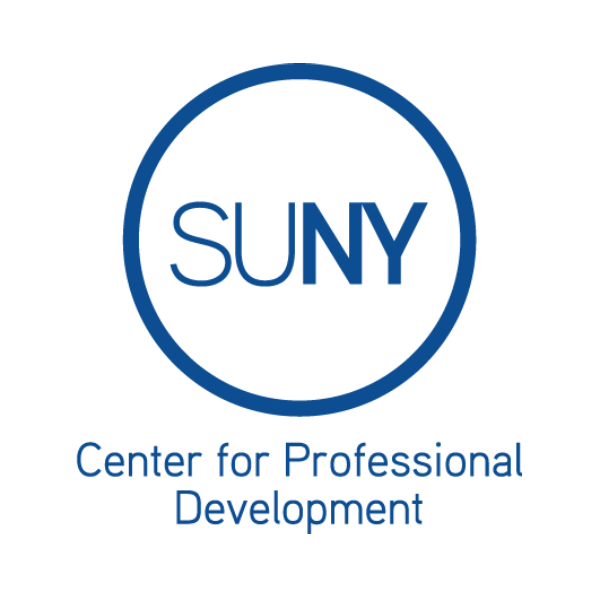
2024: Documenting Student Learning Outcomes Assessment in Brightspace: Tools and Tips with Jamie Heron
The Brightspace Learning Management System boasts a wide variety of tools to assist instructors in student learning outcomes assessment. While there are many tutorials on how to utilize the tools available, clear guidance can sometimes be obscured by information on a broad range of add-ons, subscription upgrades, and tie-ins with other assessment management platforms. These challenges often leave instructors in want of clear, concise guidance on what is available and how it can be effectively utilized for their assessment needs. The Fall 2024 Zoom-in endeavors to provide exactly that. In this event, participants will be led through the fundamentals of Brightspace assessment.
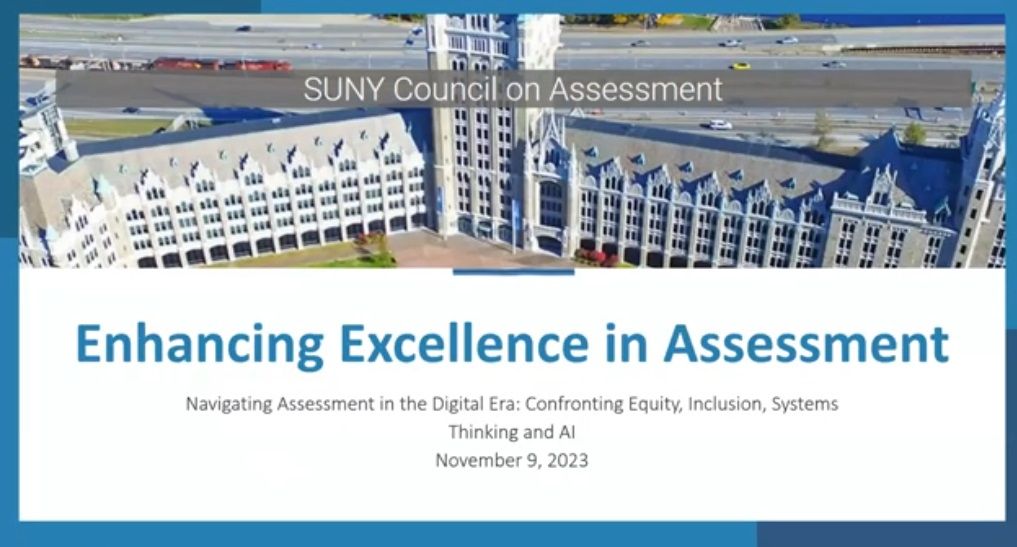
2023: Navigating Assessment in the Digital Era: Confronting Equity, Inclusion, System Thinking and AI
This is the recording for the SCoA Fall 2023 Zoom-In on Navigating Assessment in the Digital Era: Confronting Equity, Inclusion, System Thinking and AI
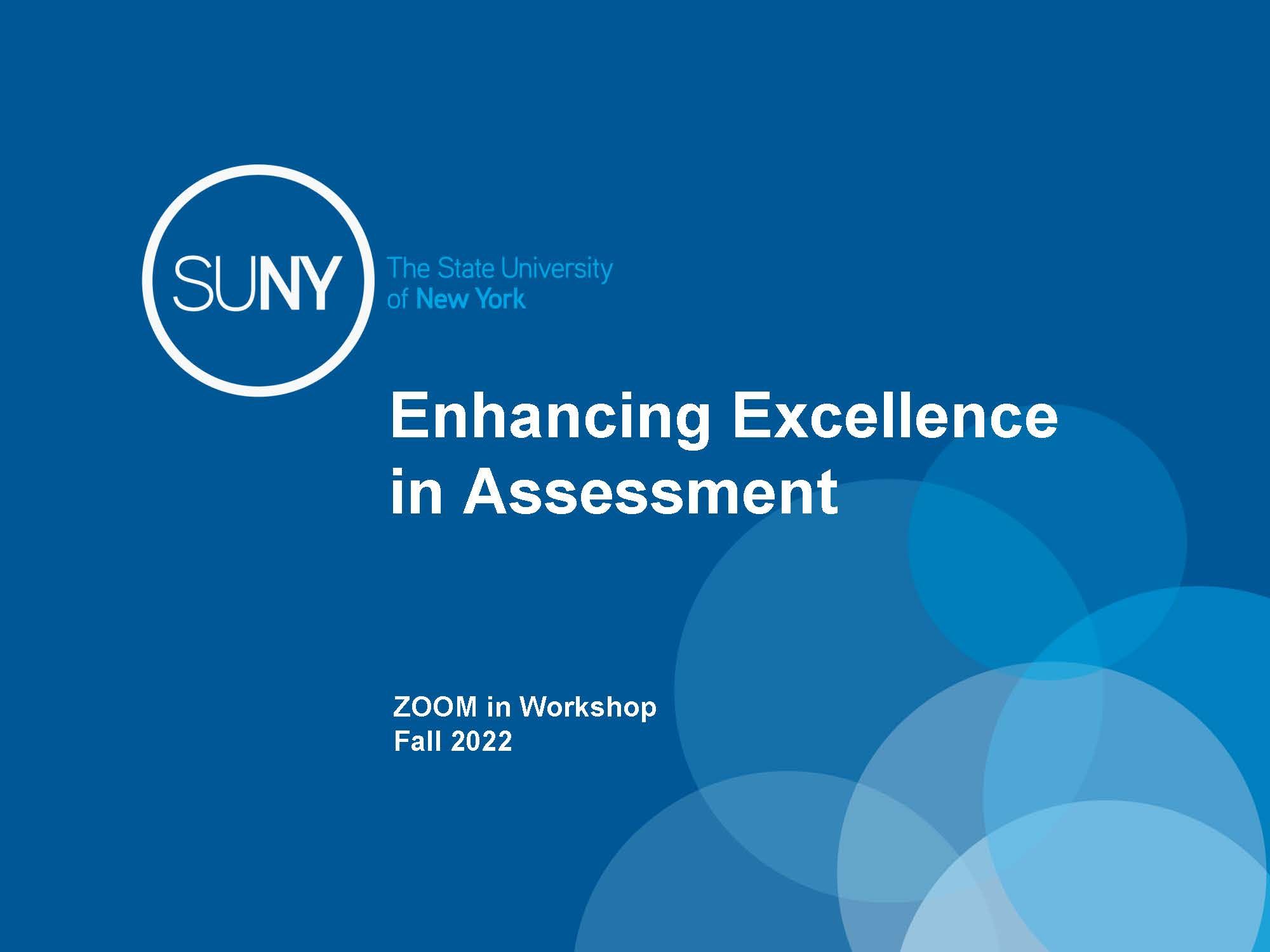
2022: Enhancing Excellence in Assessment
This is the recording for the SCoA Fall 2022 Zoom-In on Enhancing Excellence in Assessment
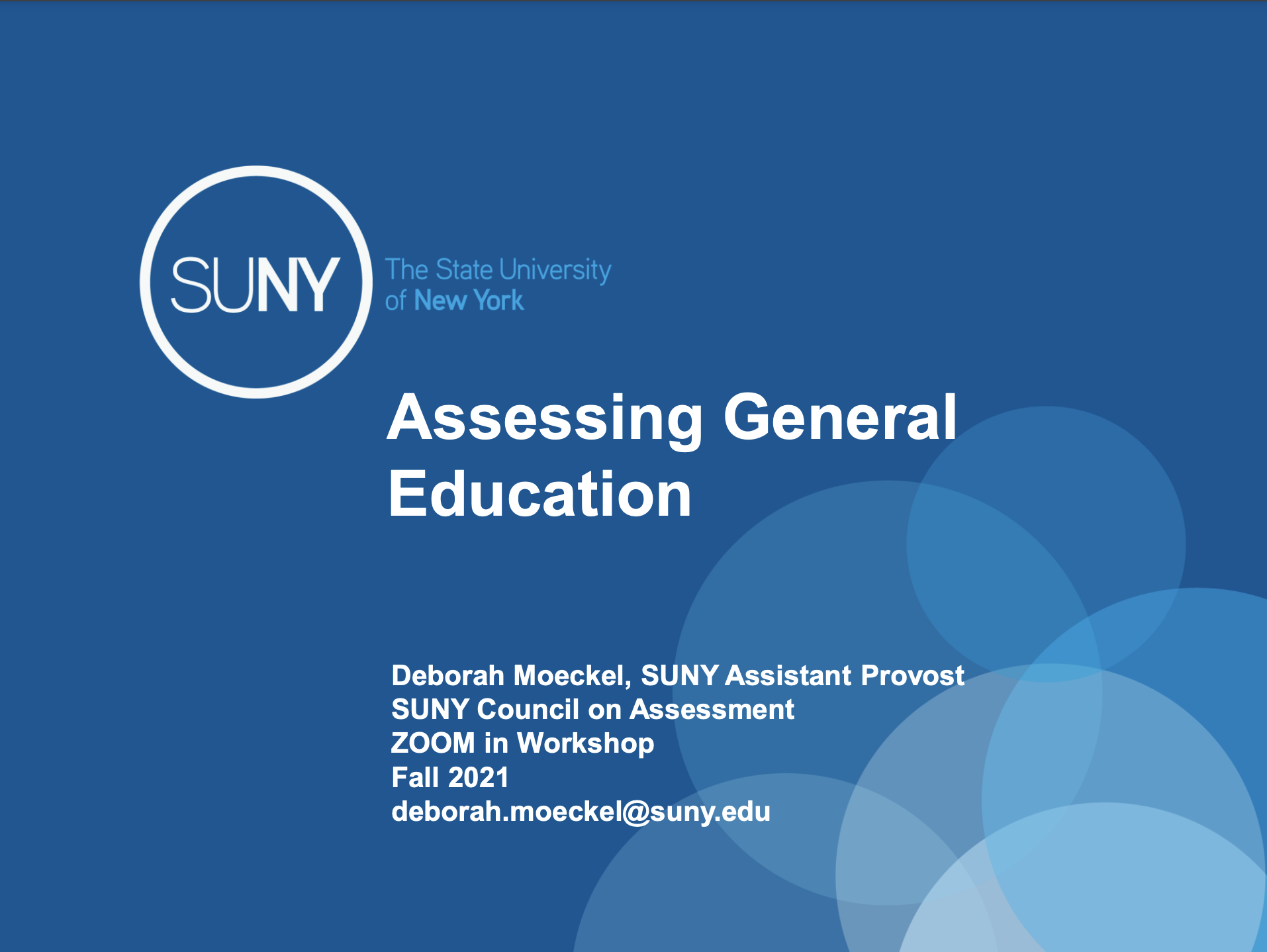
2021: Assessing General Education
This remote gathering will enable those involved in assessment on their campuses to learn about ways to leverage existing assessment data and procedures to move forward with meaningful changes related to the SUNY General Education Framework, self-study preparation, and student learning outcome assessment. The virtual session will include a presentation featuring The New Framework: SUNY General Education Assessment updates from Dr. Deborah Moeckel, Assistant Provost for Assessment and Community College Education and a panel discussion highlighting perspectives representative of diverse institutional areas currently involved in assessment, self-study preparation, and accreditation work. The session will conclude with concurrent breakout group discussions focused on student learning outcome assessment representative of a variety of areas and disciplines. The session will be interactive and offer participants opportunities to share examples, ask questions and discuss ideas pertaining to existing practices and planning for meaningful change.
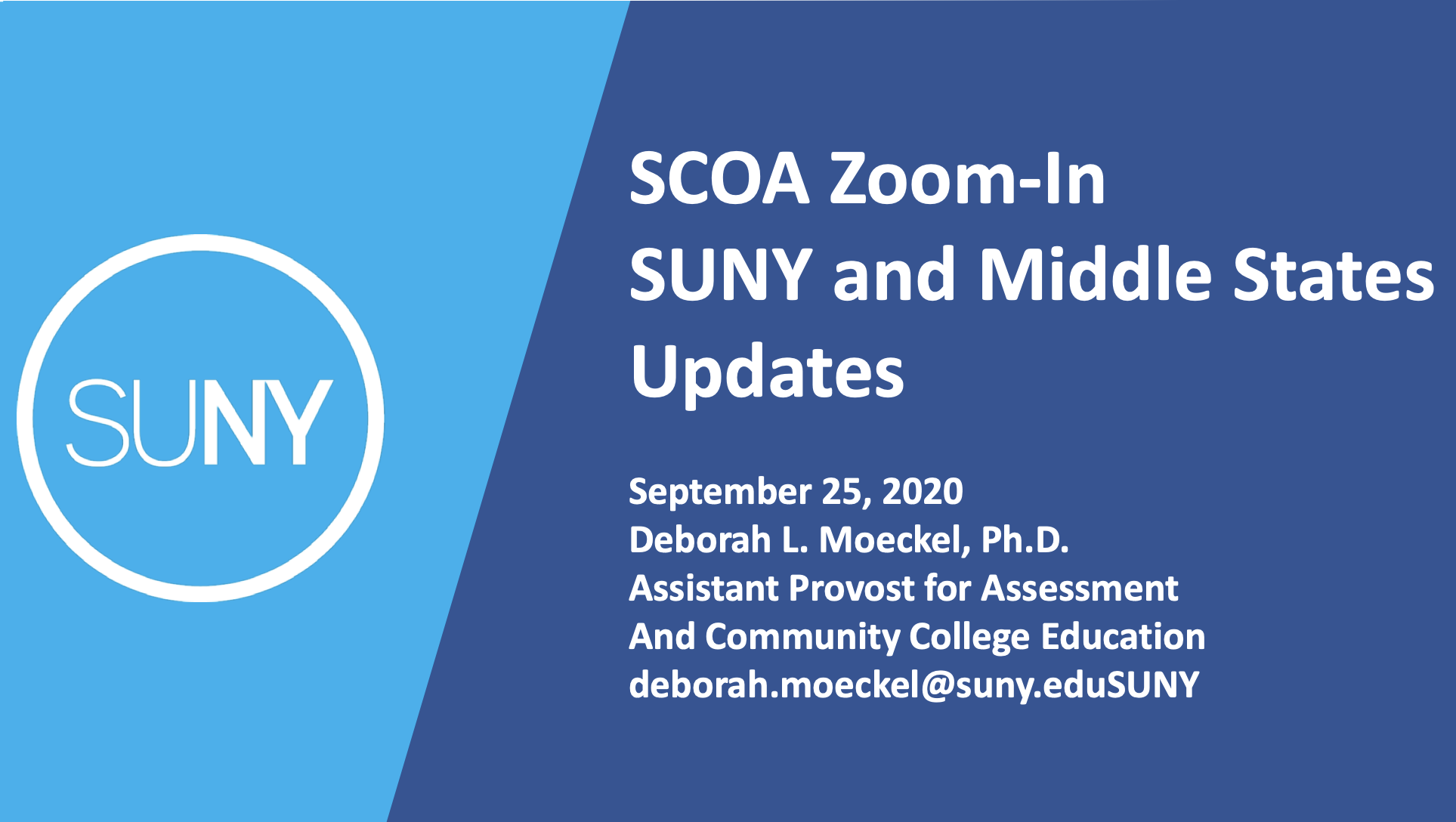
2020: Maintaining A Culture of Assessment in Difficult Times
This remote gathering enabled those involved in assessment on their campuses to connect with others and focus on pressing issues related to assessment, planning, and accreditation. The virtual session included a presentation featuring SUNY updates from Dr. Deborah Moeckel, Assistant Provost for Assessment and Community College Education and a panel discussion highlighting perspectives representative of diverse institutional areas currently involved in assessment work.
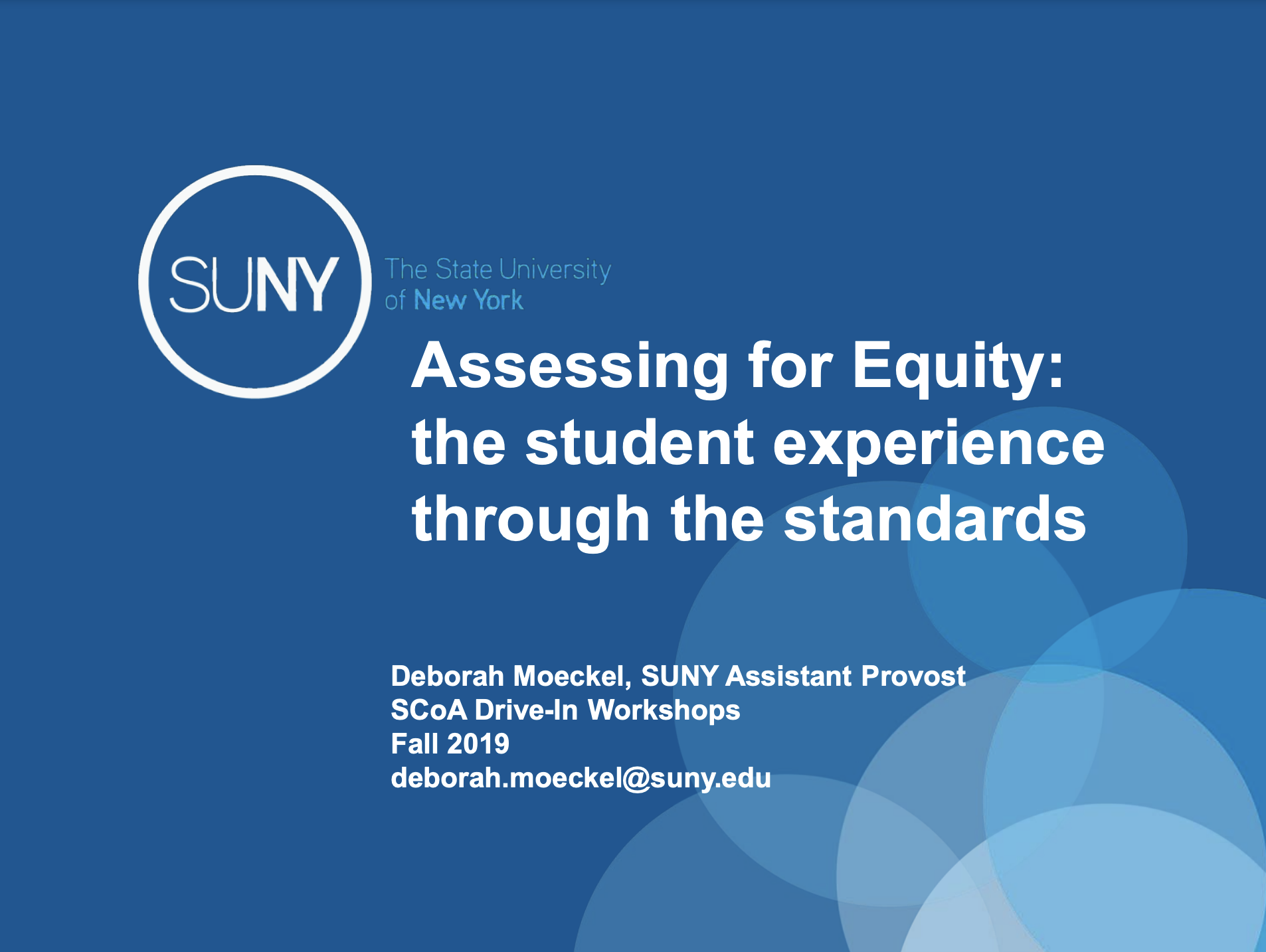
2019: Using Assessment to Promote Diversity and Equitable Outcomes
This one-day workshop on assessing for equity focused on utilizing assessment to promote diversity and equitable outcomes on campuses. Workshops explored the linkages between SUNY expectations, Middle States Accreditation and meeting local goals, expectations, and experiences measuring student success as well as achievement of outcomes aligned with the institutional missions.
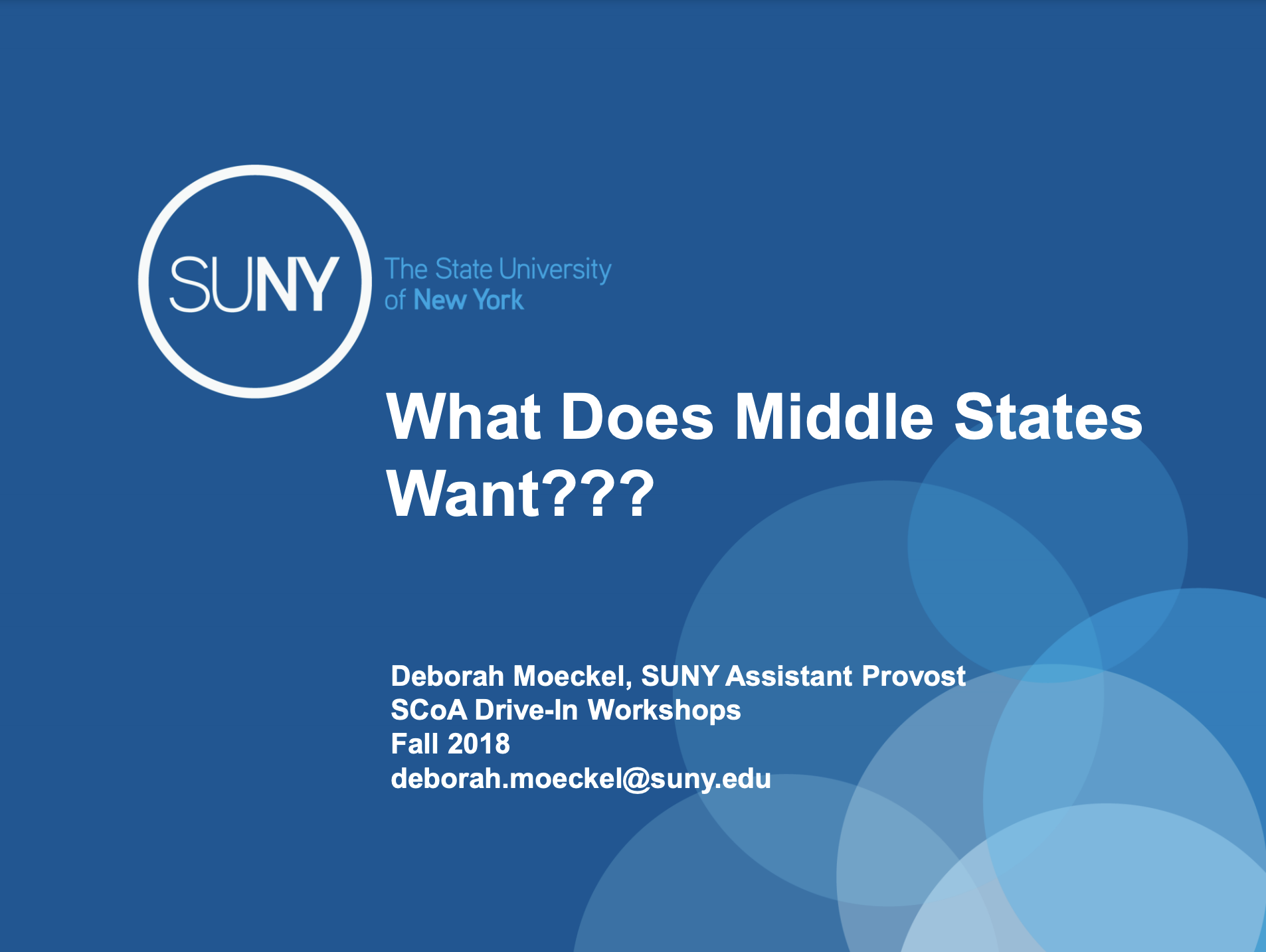
2018: Do You Know Where Your Documents Are?
This one-day workshop focused on Middle States Standard VI: Planning, Resources, and Institutional Improvement. Particular attention was focused on Criteria 2 of the standard, which asks institutions to demonstrate “clearly documented and communicated planning and improvement process that provide for constituent participation, and incorporate the use of assessment results.”
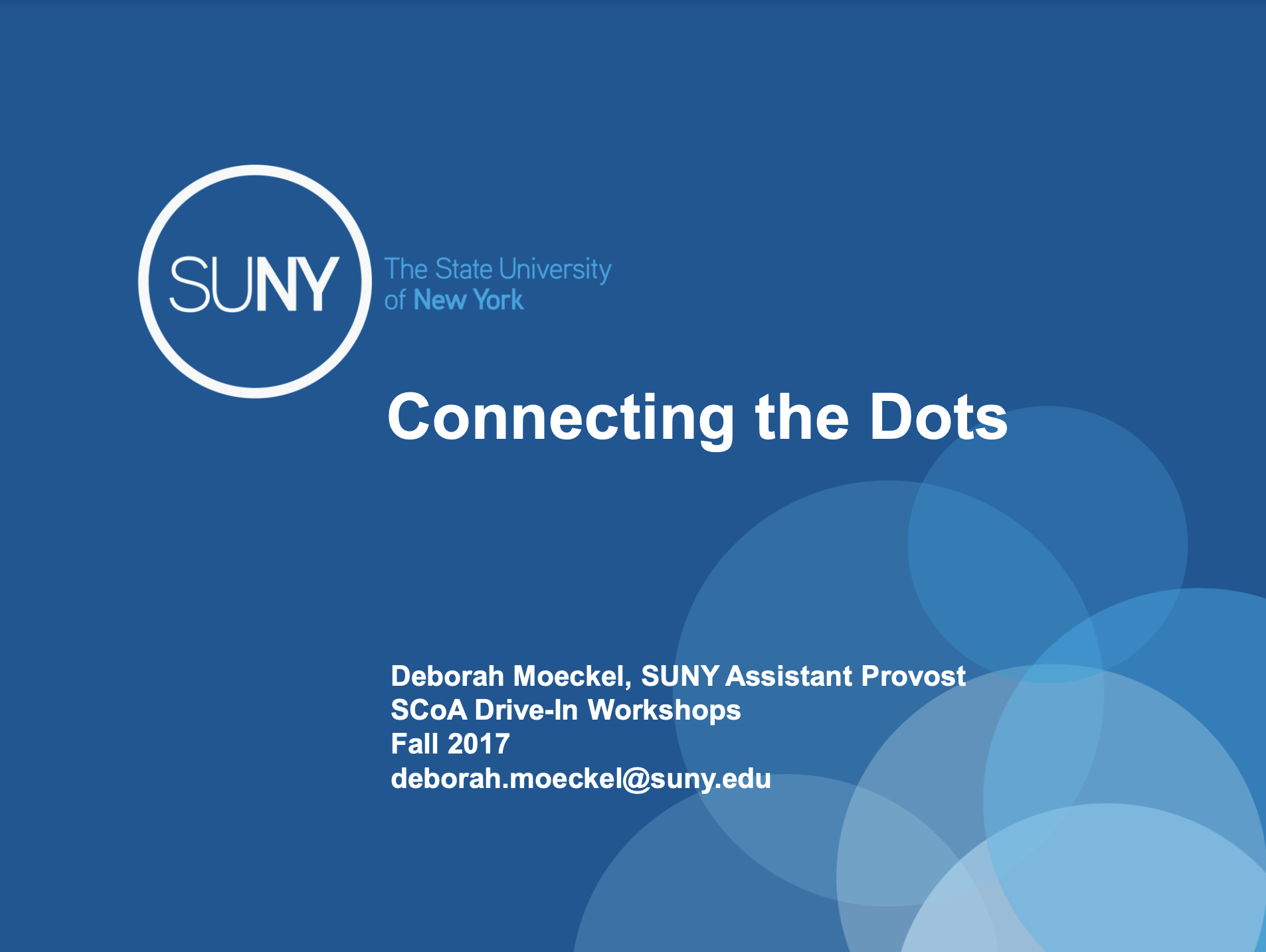
2017: Mapping Learning Outcomes: ILOs, PLOs, and CLOs
This one-day workshop on curricular mapping focused on the process of designing and implementing maps that are feasible, effective and align with the college’s overall mission. Dr. Deborah Moeckel, SUNY System Administration, discussed the process of mapping and how institutions can actively gain insights into gaps, absences, and redundancies in curriculum or instruction, programming and the obtainment of core objectives.